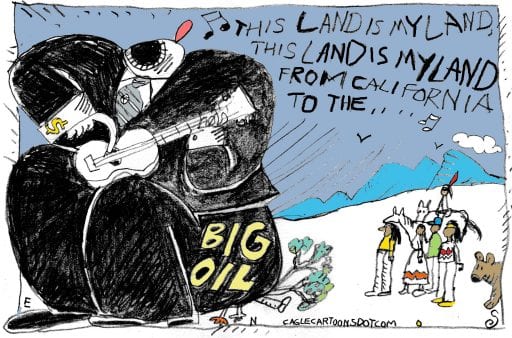BY DAVID PERRYMAN
 What did Standard Oil of California, Phillips Petroleum, General Motors, Firestone Tire & Rubber and the Mack Truck Company have in common between 1938 and 1947?
What did Standard Oil of California, Phillips Petroleum, General Motors, Firestone Tire & Rubber and the Mack Truck Company have in common between 1938 and 1947?
According to indictments issued out of the Federal District Court of Southern California in 1947, they and four other companies formed a company named National City Lines which together with a commonly-owned sister company named Pacific City Lines had acquired 46 electric transit systems in 45 American cities in 16 states.
The common interest of the corporate owners of National City Lines was that they represented industries that stood to benefit much more from shuttling passengers using gasoline and rubber rather than electricity and rails.
The conviction came in 1949 with Phillips Petroleum, Standard Oil of California and three other corporate shareholders found guilty of “conspiring to acquire control of a number of transit companies, forming a transportation monopoly” and “conspiring to monopolize sales of buses and supplies to companies owned by National City Lines” in violation of the 1890 Sherman Antitrust Act.
Few schemes to obliterate one industry in pursuit of corporate profits have been as thoroughly documented as the “electric streetcar scandal” of the 1940s.
Today, the petroleum industry utilizes a more “politically correct” method to attain the goal of eliminating technologies that might decrease demand for oil and gas. According to one Washington, DC watchdog group, over $114 million has been paid by the oil, gas and coal industries over the last decade to purchase access and influence in Washington.
As a result, the oil industry has captured favor of and influence over a sufficient number of elected officials to dictate government policy. An obvious indicator of this influence is the fact that a 41-year executive of Exxon, now ExxonMobil, serves as the United States Secretary of State.
The influence of shrewdly placed oil and gas campaign contributions has been lucrative for Oklahoma drillers. Not only is the severance tax [gross production tax] rate paid by oil and gas in Oklahoma approximately one-third of the rate applicable in the next lowest energy producing state, the industry receives special protections from civil liability and local regulation.
Neither these civil liability protections, the nation’s lowest effective severance tax rate nor the fact the low tax paid is “in lieu” of ad valorem property tax and all other taxes has not satisfied Oklahoma’s oil and gas industry.
In a manner eerily reminiscent of the electric streetcar scandal, the Oklahoma oil and gas industry has allocated hundreds of thousands of dollars to undermine renewable energy production in our state. That together with attaining such a degree of influence over the Legislature, the Corporation Commission and the office of the governor is tantamount to a “merger” of interests.
When news broke last session that Gov. Mary Fallin had asked the CEO of one of Oklahoma’s largest oil companies if the GPT could be raised, it became very apparent there was no separation between the state and big oil.
So, despite the hundreds of millions of ad valorem dollars paid annually by wind energy companies to schools, counties, fire districts and other forms of local government, the oil industry and its investors are leaning on legislators to hammer it with double taxation.
The wind industry is already under a greater tax burden than oil and gas and its revenues have replaced scores of WPA-era rural school buildings. Keeping those rural schools off the school funding formula frees up hundreds of thousands of dollars for other public schools all across the state.
Not to be overlooked is the fact that the wind industry and the cheap power that it generates keeps electric bills low for all Oklahomans.
No one wants to harm the oil industry. We are blessed to have abundant natural resources in this state. However, until there is a separation of oil and state, the citizens of Oklahoma get the short end of the stick.
– David Perryman, a Chickasha Democrat, represents District 56 in the Oklahoma House







